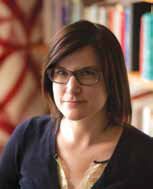Sputnik Sweetheart

There is a very specific glory reserved for those honored with a ticker tape parade in Manhattan. Other cities can try to throw a similar shindig, but without those towering skyscraper canyons, the impact is not the same. So to have elicited this level of civic and national pride at 23 years of age and live one’s entire life as the only musician ever to do so is unique indeed.
With folded hands over his heart, the quiet, lanky Texan pianist Van Cliburn found himself at the center of a happy swarm of hundreds of thousands of cheering New Yorkers in 1958. He’d just returned home from Moscow, where he won the inaugural International Tchaikovsky Competition. The political ramifications of his artistic achievement were not what made him smile that day, even though the news reports were full of comments about a new accord between two super powers engaged in a cold war. “Oh, I never thought about all of that,” Cliburn said in an interview with The New York Times in 2008. “I was just so involved with the sweet and friendly people who were so passionate about music.”
Cliburn was celebrated by Russians for his romantic rendition of their greatest hits, and feted by Americans for boosting the national spirit one year after the space race was won by Sputnik. But in a Dallas/Fort Worth radio interview replayed after Cliburn’s death last month, the musician again asserted that the parade was not about him. It was a revitalized love for classical music that he felt from the throngs that day.
That 1958 parade may have been the only ticker tape tossed in recognition of a musician, but 55 years later this country’s artistic contributions are still celebrated far and wide. Subsequently, domestic innovation in the technologies that drive creation and distribution of recorded, cinematic, and performing arts is also worthy of note.
As we talk about attracting new talent to the fields of engineering and mathematics in this country, it’s important not to forget the magnetism of the arts. Count the number of electrical and mechanical engineers who read and contribute to this magazine, and then extrapolate what percentage of those were brought to this industry by music, movies, or theater. It’s a pretty big number.
It’s hard to miss the contribution of the arts to the history of technical innovation, but it’s easy to forget when you’re looking for a new systems tech. Are you a patron of the arts in your community? The symphony might be a good place to find your next prizewinning engineer.
A daily selection of the top stories for AV integrators, resellers and consultants. Sign up below.
